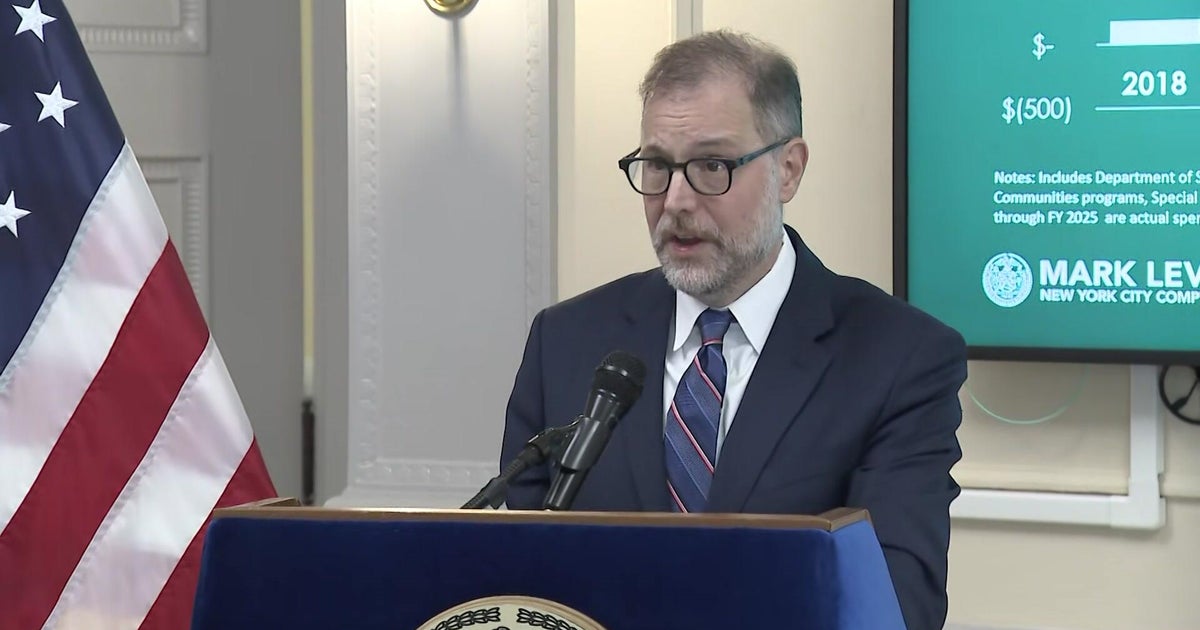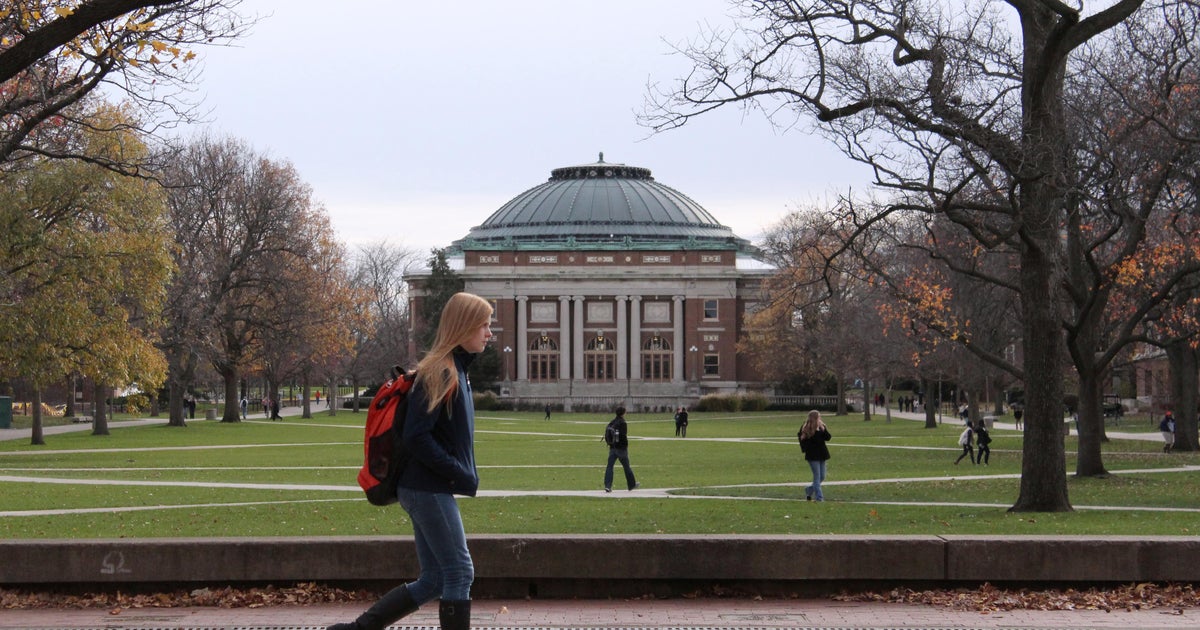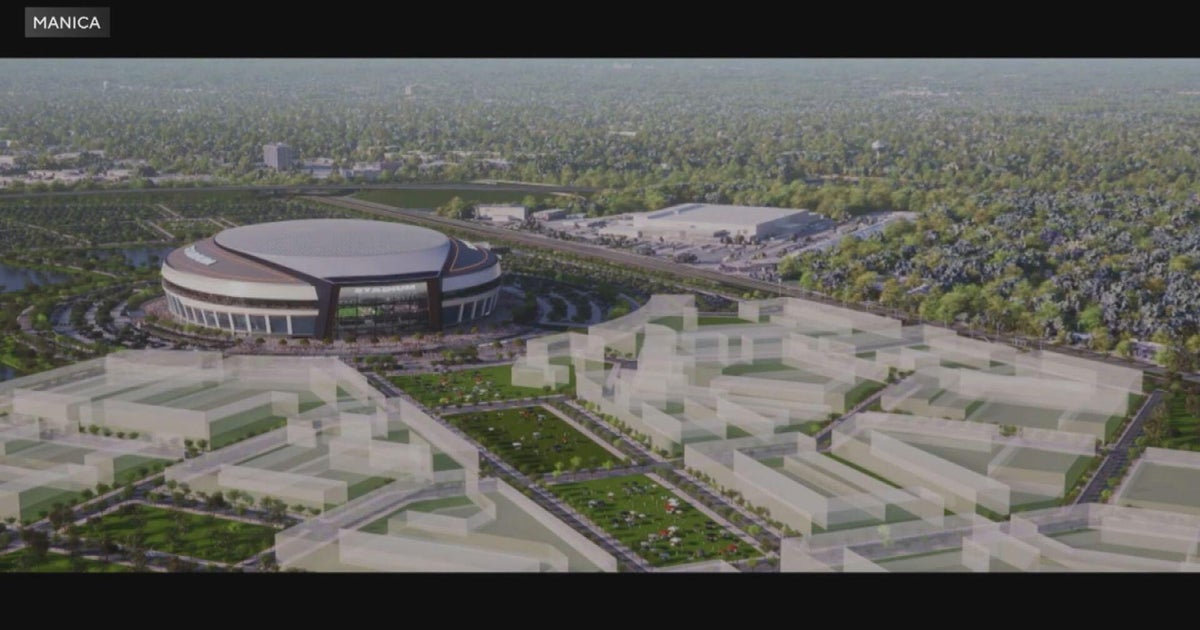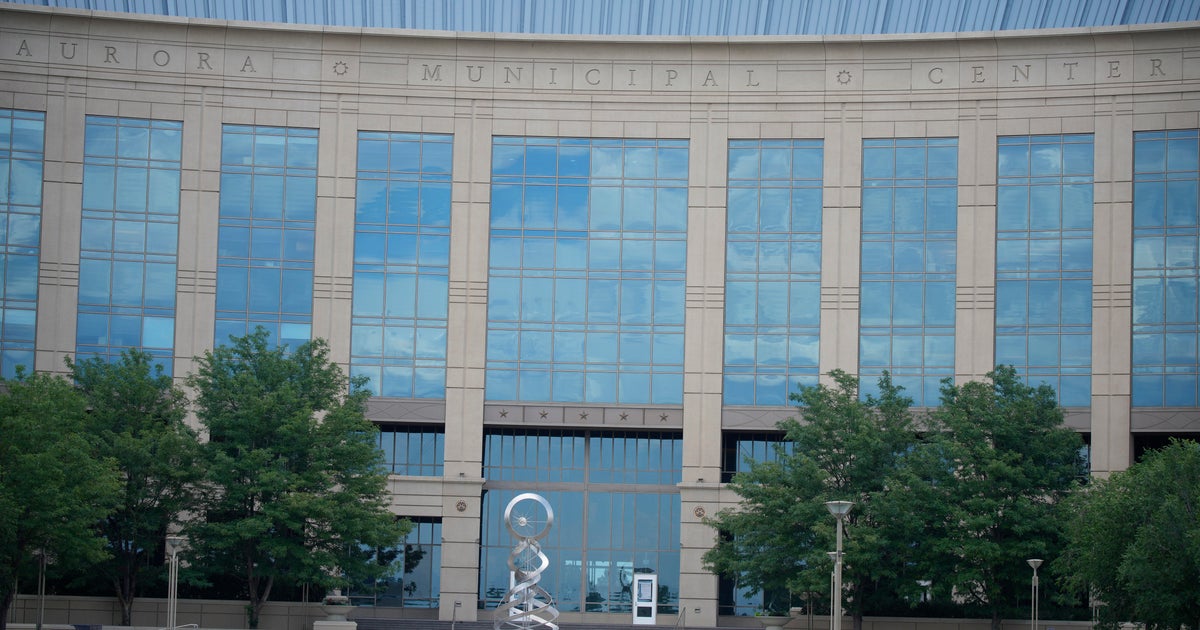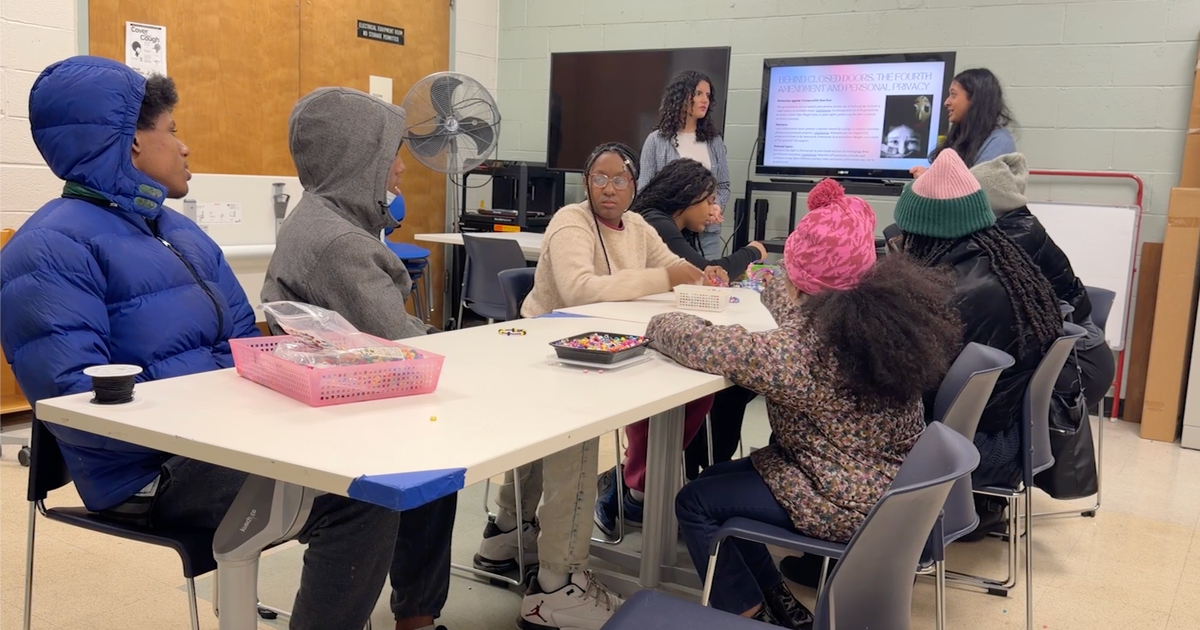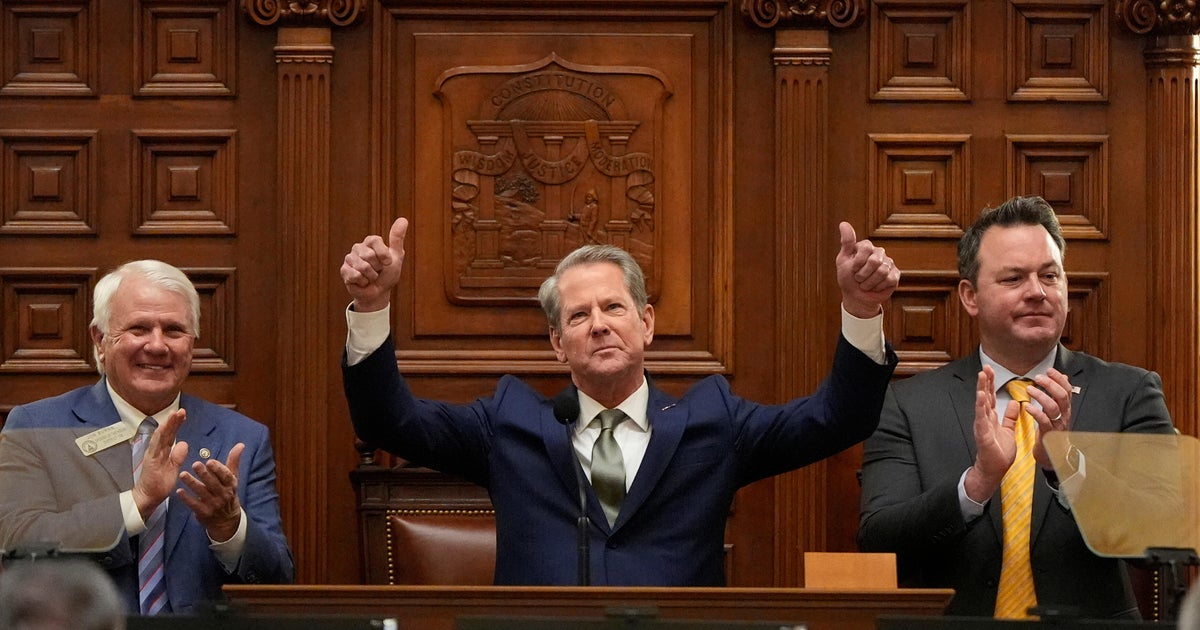Mayor Lori Lightfoot Says 2020 Budget Plan Doesn't Include Large Property Tax Hike, But Needs Help From Springfield
by Todd Feurer, CBS Chicago web producer
CHICAGO (CBS) -- Presenting her first budget address as massive crowds of striking teachers rallied outside City Hall, Mayor Lori Lightfoot said she is not relying on a property tax hike to close an $838 million deficit, but that might change if state lawmakers don't come through with some help.
"Residents don't want to see their property taxes increased. And who can blame them? That is why – before I go any further – I am here to tell you that we didn't solve our $838 million budget gap with a large property tax increase in 2020," Lightfoot said.
Mayor Lightfoot is proposing a small one – to raise $18.4 million to keep libraries open on Sundays. That, City Hall said, would amount to a $13 tax hike on a $250,000 home per year.
It is one of a handful of tax hikes the mayor is proposing.
The mayor's plan relies on the Illinois General Assembly to approve a graduated real estate transfer tax, revisions to the Chicago casino plan, and statewide pension reform.
To eliminate an $838 million budget shortfall, Lightfoot said she was relying on "savings and efficiencies" of more than $530 million, and new or increased revenue sources totaling about $350 million.
Without the help she's seeking from Springfield, the mayor said she and City Council would "be forced to make more painful choices when it comes to new sources of revenue."
"I have full confidence that we will be able to work with our partners in the state capital to keep that from happening," Lightfoot said.
[scribd id=431732271 key=key-U2GtdmdNhy2ucNXA8392 mode=scroll]
Rather than a property tax hike, the mayor's $11.65 billion budget plan relies on revenue from the aforementioned real estate transfer tax, increased taxes on rideshare services, higher parking meter rates, a tax hike on food and drinks sold at downtown restaurants, and Medicaid reimbursement for emergency services.
Lightfoot is seeking a $40 million increase in the congestion tax on rideshare companies, in particular tripling the fee charged for solo rides to or from downtown.
Anticipating blowback from companies like Uber and Lyft, the mayor said taxpayers should be "deeply skeptical of the false narrative rideshare companies are spreading" that the tax hike would take money out of driver's pockets.
"The multi-millionaire owners of those companies have had essentially free reign in Chicago, and if they cared as much about equity as they say, they would cut their drivers in on a bigger share of their profits, improve their working conditions, and not pass their costs on to them," Lightfoot said.
RELATED: Read The Mayor's Full Budget Address
The mayor also has proposed increasing the tax on food and drinks sold at restaurants from a quarter of a percent to half a percent to generate $20 million in new revenue, and increasing parking meter rates to generate another $7 million in revenue. She has said the city's lease of the parking meters to a private firm allows the city to keep the additional revenue she's proposing.
In what might be a sweetener for progressive aldermen wary of her proposed tax increases, the mayor also proposed increasing the city's minimum wage to $15 an hour by 2021, four years sooner than the rest of the state of Illinois.
"Our working families can't wait until 2025 to earn enough to live on," she said.
In addition to the new tax revenues the mayor has proposed, Lightfoot's budget plan includes $163 million in Medicaid reimbursement for ambulance services, and $20 million in savings by eliminating vacant positions.
The budget plan also includes $200 million in upfront savings through refinancing $1.3 billion in existing debt. Old debt will be refinanced at lower interest rates, but by using the entire $200 million in expected savings in 2020, the city leaves itself vulnerable to higher debt service payments starting in 2021.
Laurence Msall, president of the Civic Federation, a nonpartisan budget watchdog group, said the Lightfoot's first budget plan was "a strong effort by a new mayor trying to close an $800 million deficit."
[scribd id=431732269 key=key-TifU79eSEKbhUx1RJzMP mode=scroll]
Msall said he believes the mayor's budget plan is a good blend of structural efficiencies and new taxes that won't burden every single resident. He said the proposals for increased rideshare taxes and downtown restaurant taxes, in particular, are something that most taxpayers can avoid if they want.
"You can avoid the ridesharing tax by using the regular transportation. The city needs to get more people on the CTA. They have seen a significant dropoff on that. In addition, the restaurant tax can also be avoided if you choose not to eat in the downtown restaurants," he said.
While the mayor is relying on help from Springfield that is far from certain, Msall said the city has options if state lawmakers don't agree to the mayor's requests.
"The veto session is when they're going to be pushing this. The veto session is scheduled to occur -- at least the first, the beginning of it -- before they have to approve the budget," Msall said.
The Illinois General Assembly has three days of veto session scheduled for next week, and three more scheduled for mid-November, meaning Lightfoot and aldermen at least will know before the Dec. 1 budget deadline if they have to come up with changes to her spending plan.
The mayor's proposal for a graduated real estate transfer tax would ease the burden on homeowners whose houses sell under $500,000 while charging those with more expensive homes and commercial properties. She estimated it would generate $50 million in new revenue for 2020, and $100 million a year after that.
She's also proposed either combined state-city ownership of a Chicago casino, or a lower tax rate for a privately-owned casino in the city, to make the plan more viable.
Lightfoot said her pension plan would have all four city pension funds on track to structural balance by 2022.
Aldermen also sounded cautiously optimistic about the mayor's budget plan, though they said they still want to see specifics on her cost savings and revenue ideas.
"The biggest concern has been alleviated today, which was a concern for a huge property tax increase that would affect lots of people in the city of Chicago. We're not going to see that now," said Ald. Pat Dowell (3rd), who chairs the City Council Budget Committee.
Ald. Maria Hadden (49th) said one thing that has her nervous is that the mayor doesn't seem to be considering more progressive tax ideas, like reinstating the city's corporate head tax, if the city doesn't get the help it's seeking from state lawmakers.
"Those aren't being considered currently, which means I think they're still on the table for what we may still lack and have deficiencies based on what we get out of Springfield," she said. "We need to consider some of those other options, because they're not included now."
Dowell declined to speculate if there are enough votes on the City Council to approve a property tax hike if state lawmakers don't come through with the help the mayor is seeking.
"Let's wait and see what Springfield does. I mean, obviously we're going to make our push in Springfield for real estate transfer tax and for the casino, and we'll see what happens," she said.
